Pro-Ject Debut Pro review: a truly tantalising turntable
Can Pro-Ject put no foot wrong with the Debut Pro? It's a great turntable option in a very competitive market

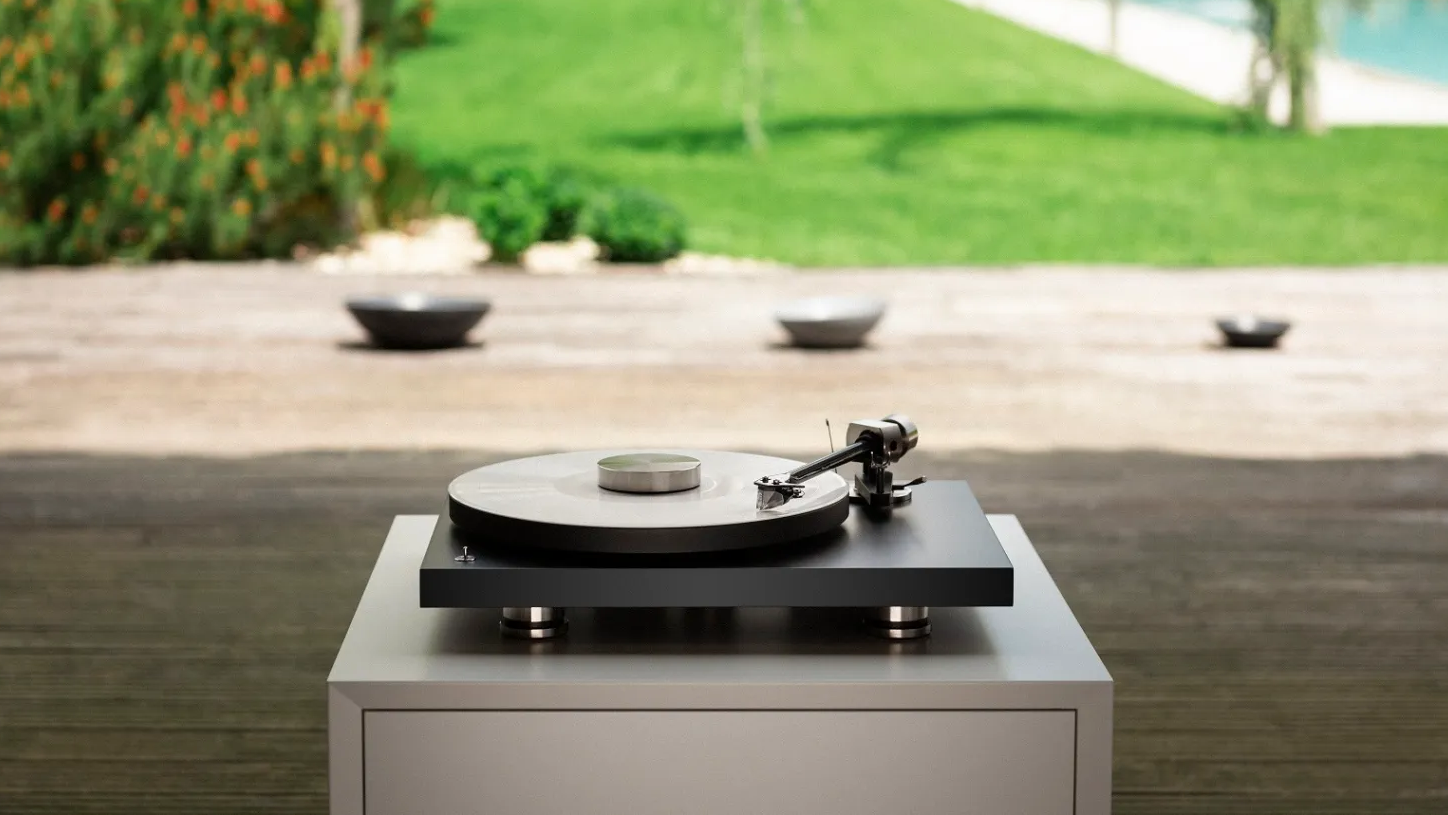
Let there be no doubt: Pro-Ject knows exactly what it’s doing when it comes to extracting maximum bang for your turntable buck. The Debut Pro looks and feels good, is built to last, and its sound is good enough to keep you happy for the long haul.
-
+
Detailed, open and coherent sound
-
+
Deft sonic integration
-
+
Good build, finish and specification
-
-
Can be bettered for rhythmic fidelity
-
-
Some very capable rivals
Why you can trust T3

A lot of the relatively rude health of the vinyl format is thanks to Pro-Ject. For over 30 years now, the Austrian company has kept the turntable flame alive even through its darkest mid-90s days - and it’s safe to say the company has sold any number of us our very first record player.
The original Debut deck launched in 1999 - and with this ‘Pro’ variation, Pro-Ject wants to sell you your second (or maybe even your third) record player too. But can a hero of the entry-level work its magic higher up the food-chain too?
Pro-Ject Debut Pro: Price & Availability
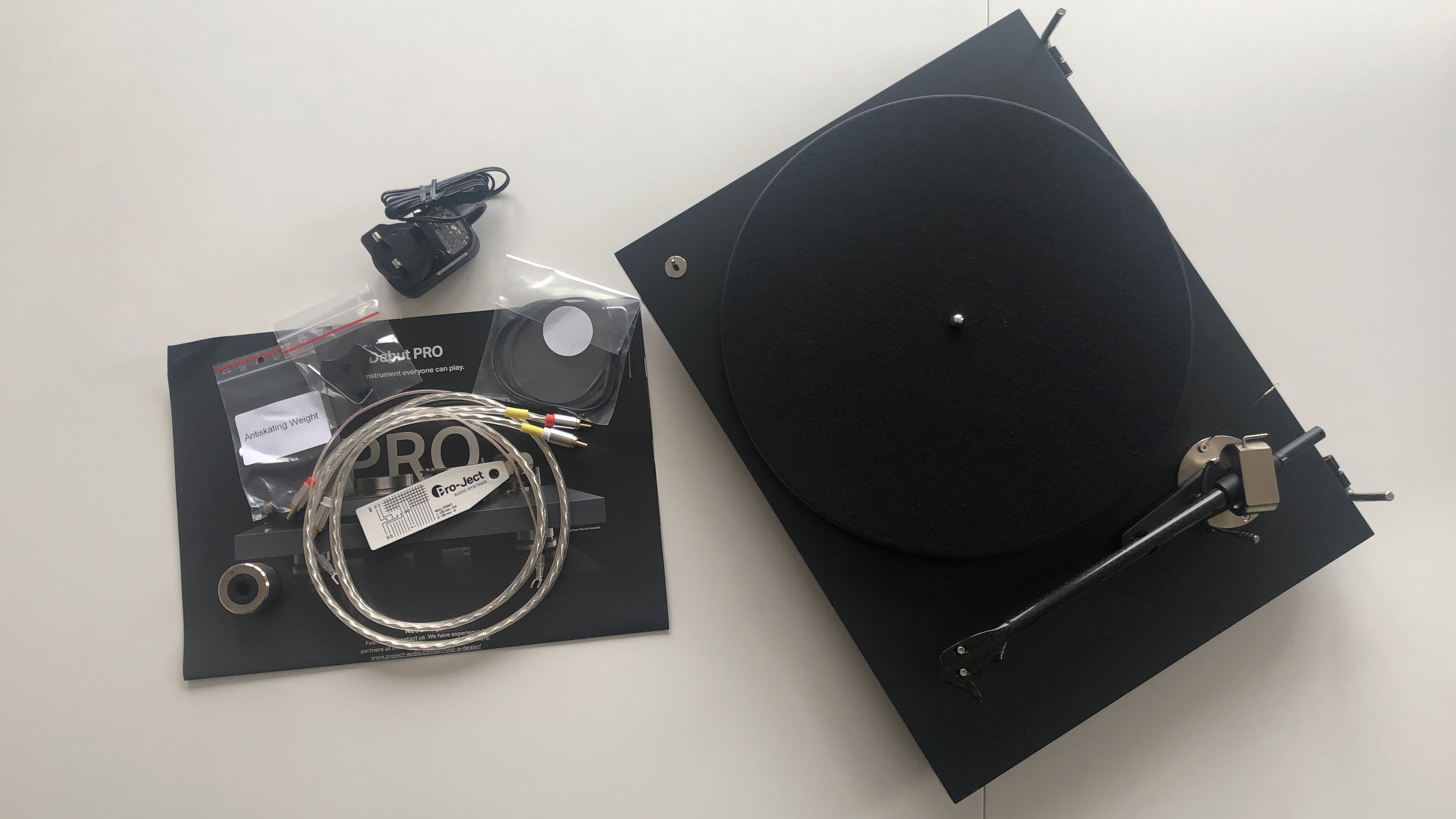
The Pro-Ject Debut Pro is on sale now, and in the UK it’s priced at £699 or thereabouts. In America it sells for $999 (which looks a little pricey by comparison), and in Australia it’s yours for AU$1099 (which doesn’t).
This is not insignificant money for a record player, no matter the territory you’re shopping in - and it brings Pro-Ject (not for the first time) into direct competition with some of the most auspicious turntable brands around.
Pro-Ject Debut Pro review: What's new?
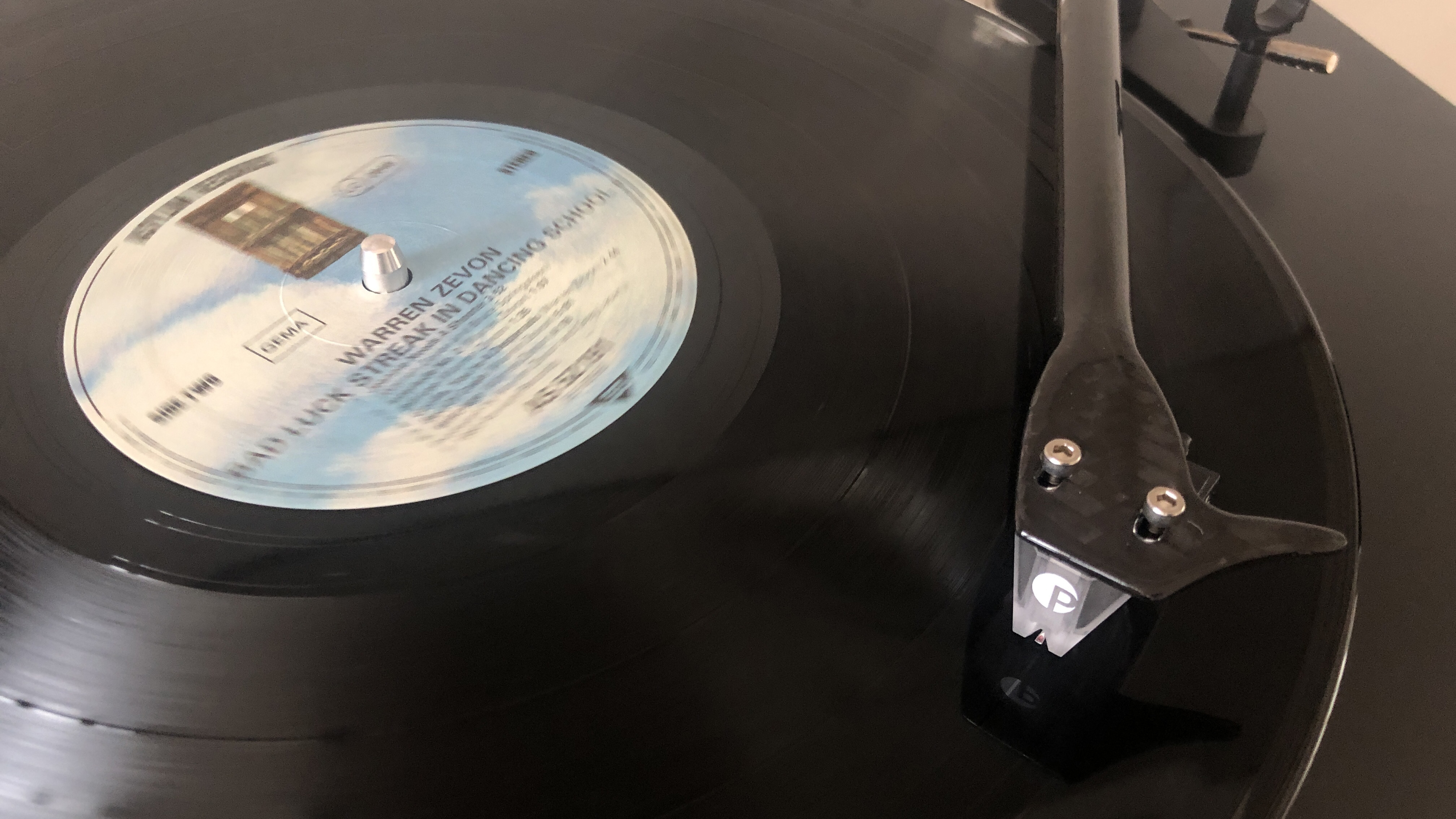
Naturally, there’s been no tearing up of the turntable rulebook here, and consequently not much that’s truly ‘new’. There have been definite refinements, though…
Take the tonearm, for example. It’s a combination of aluminium (on the inside, where it takes care of damping) and carbon fibre (on the outside, where its absolute rigidity is valuable).
Or consider the tonearm’s bearing housing - it’s of nickel-plated milled aluminium, and it contributes to the smooth action of the tonearm and the utter lack of play in its bearings.
Get all the latest news, reviews, deals and buying guides on gorgeous tech, home and active products from the T3 experts
The tonearm base, too, has come under the microscope - it’s height-adjustable, so adjustment of both vertical tracking angle and azimuth is possible. Which means you can go ahead and put on a chunkier slip-mat if you fancy, or try out different cartridges.
The Debut Pro is supplied with a very capable cartridge pre-fitted, though, so don’t be in any rush. Using the well-regarded Ortofon 2M Red as a jumping-off point, Pro-Ject has developed the ‘Pick It Pro’ cartridge - it’s a frivolous name for what is a deadly serious piece of moving magnet equipment.
Pro-Ject has even had a bit of a think about the platter on which your vinyl spins. It’s a hefty die-cast aluminium design, and features a substantial ring of thermoplastic elastomer around the inside to assist with resonance-damping. There’s even a little indent in the centre so your record’s label doesn’t prevent the record from sitting completely flat.
Pro-Ject Debut Pro review: Performance
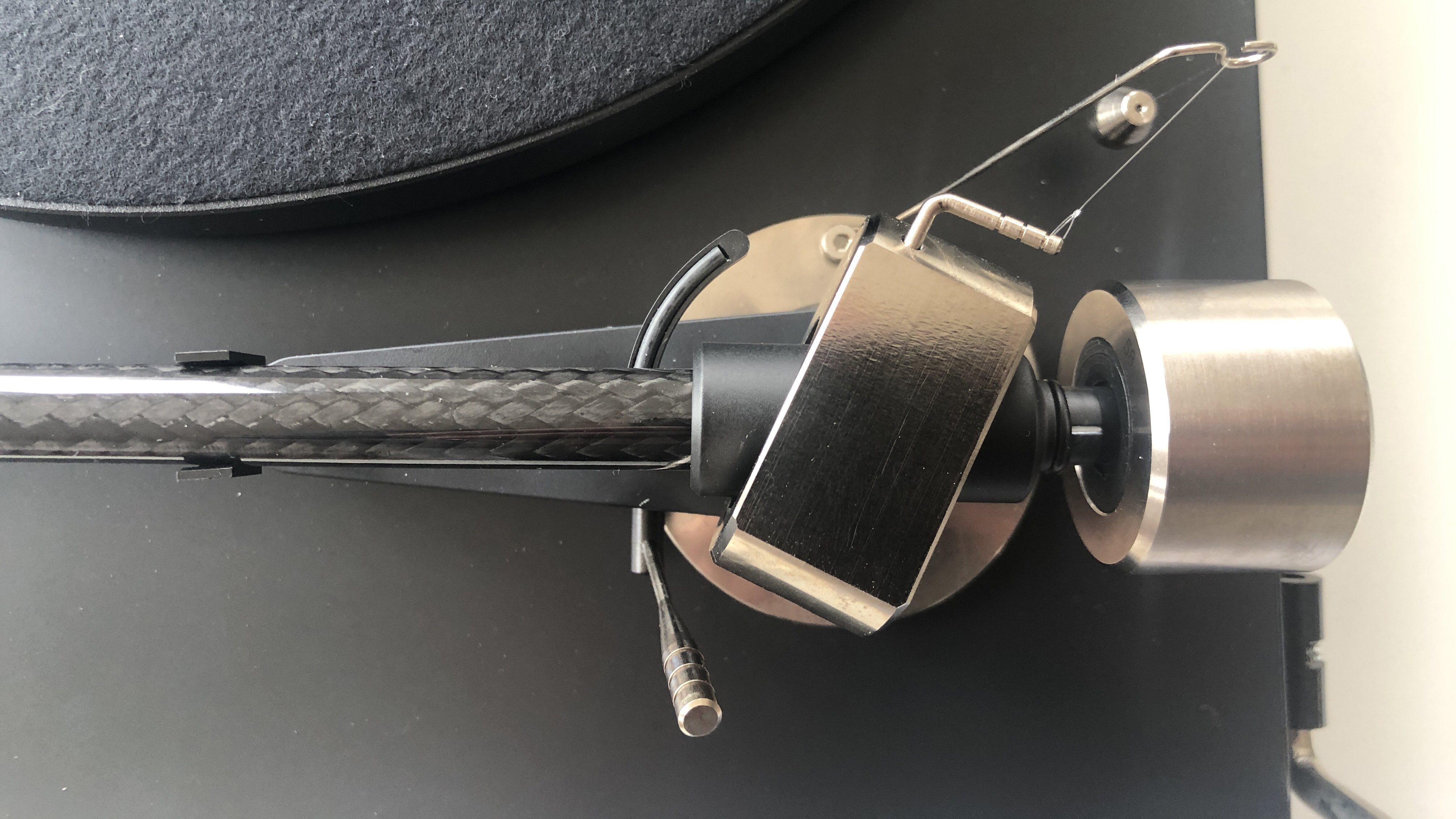
The headlines are these: in every meaningful area where vinyl is held up as the best music storage format around, the Pro-Ject Debut Pro is a very strong performer. And it’s adept even in some areas where vinyl doesn’t automatically excel.
Where clarity, detail retrieval and insight into a recording are concerned, the Debut Pro is as good as any price-comparable rival you care to mention. From the top of the frequency range to the bottom, it unearths and retains an absolute stack of information - no matter if it’s about the texture of timbre of a specific instrument, the intensity with which it’s being played or its position on the (beautifully described and wide-open) soundstage, the Pro-Ject leaves you in no doubt whatsoever. It’s informative in the manner of a news presenter.
It serves up deep, well-shaped and properly controlled low-frequencies, and hits respectably hard by turntable standards. The top-end is equally disciplined, with ample bite and crunch to treble sounds but little-to-no edginess or hardness. And in between, the midrange communicates in torrents - singers of all kinds, all abilities and all attitudes will get the expression they’re striving for.
There’s decent dynamic heft available, too, making the journey from ‘very quiet’ to ‘extremely loud’ both rapid and significant. Low-temperature harmonic variations aren’t overlooked either, and the smaller-scale or lower-key a recording the more the Pro-Ject seems to pore over it in an effort to deliver the full story.
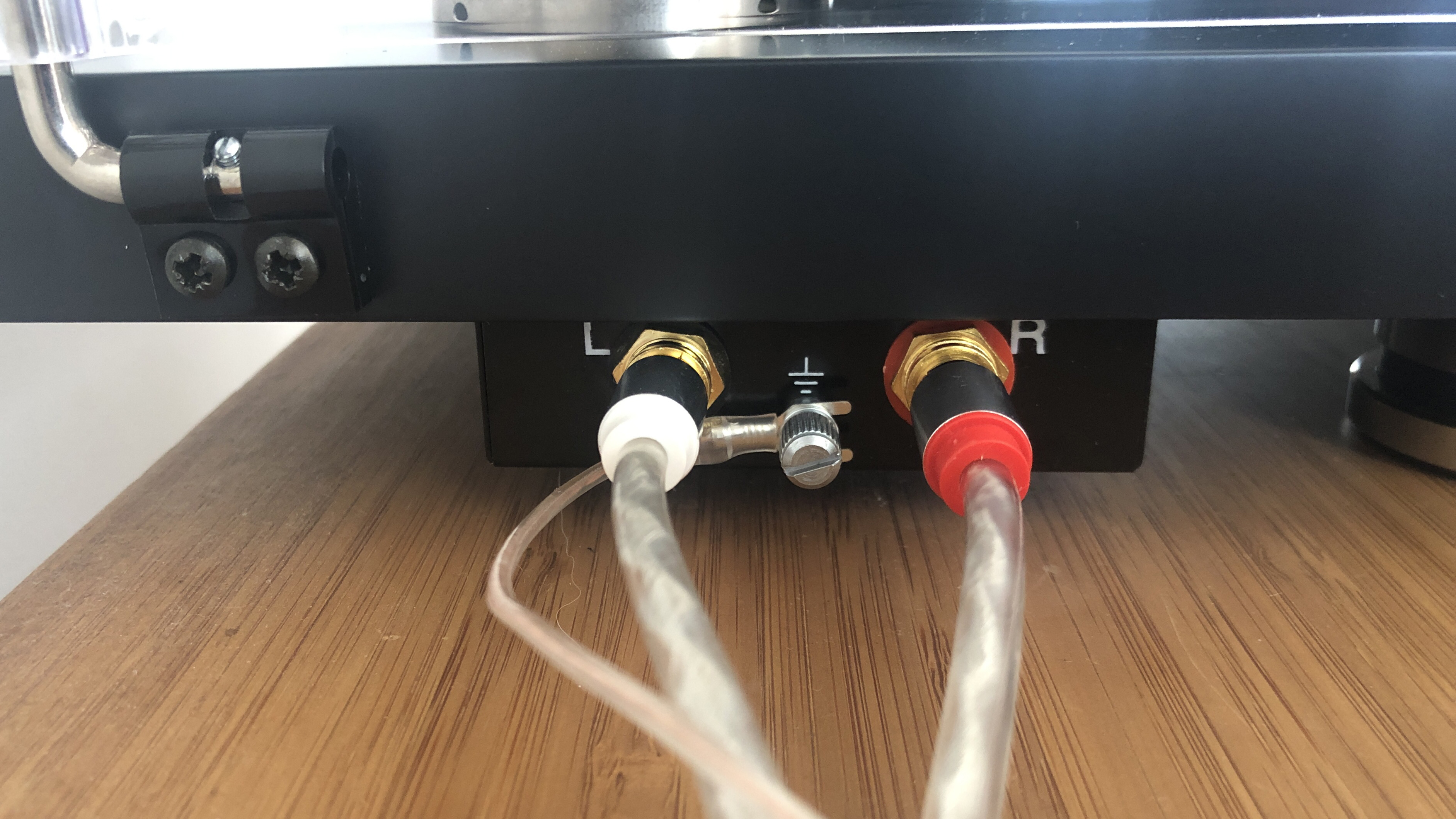
The unity and coherence of the overall presentation that’s so prized in the vinyl format is in evidence too. No matter if a recording consists of one instrument and a voice, or a full-scale symphony orchestra with its blood up, the Debut Pro extracts a tangible sense of ‘performance’. The sensation of ‘togetherness’ may seem like a redundant description when discussing a roomful of musicians all playing at once, but it’s apparent enough here to make some alternatives sound just slightly vague and/or uncoordinated.
In fact, about the only area where the Debut Pro is anything less than deeply impressive is rhythmic expression. Don’t get the idea the Pro-Ject has two left feet or anything like that - it’s more than capable of tracking the rhythmic aspects of a recording closely enough to fill a dancefloor. But when compared to the very best of its rivals (all of which, to be fair, are at least a little more expensive) it’s just fractionally less than sinuous. And anyway, as shortcomings go it’s minor in the extreme when stacked against everything the Debut Pro does so well.
Pro-Ject Debut Pro review: Design & Usability
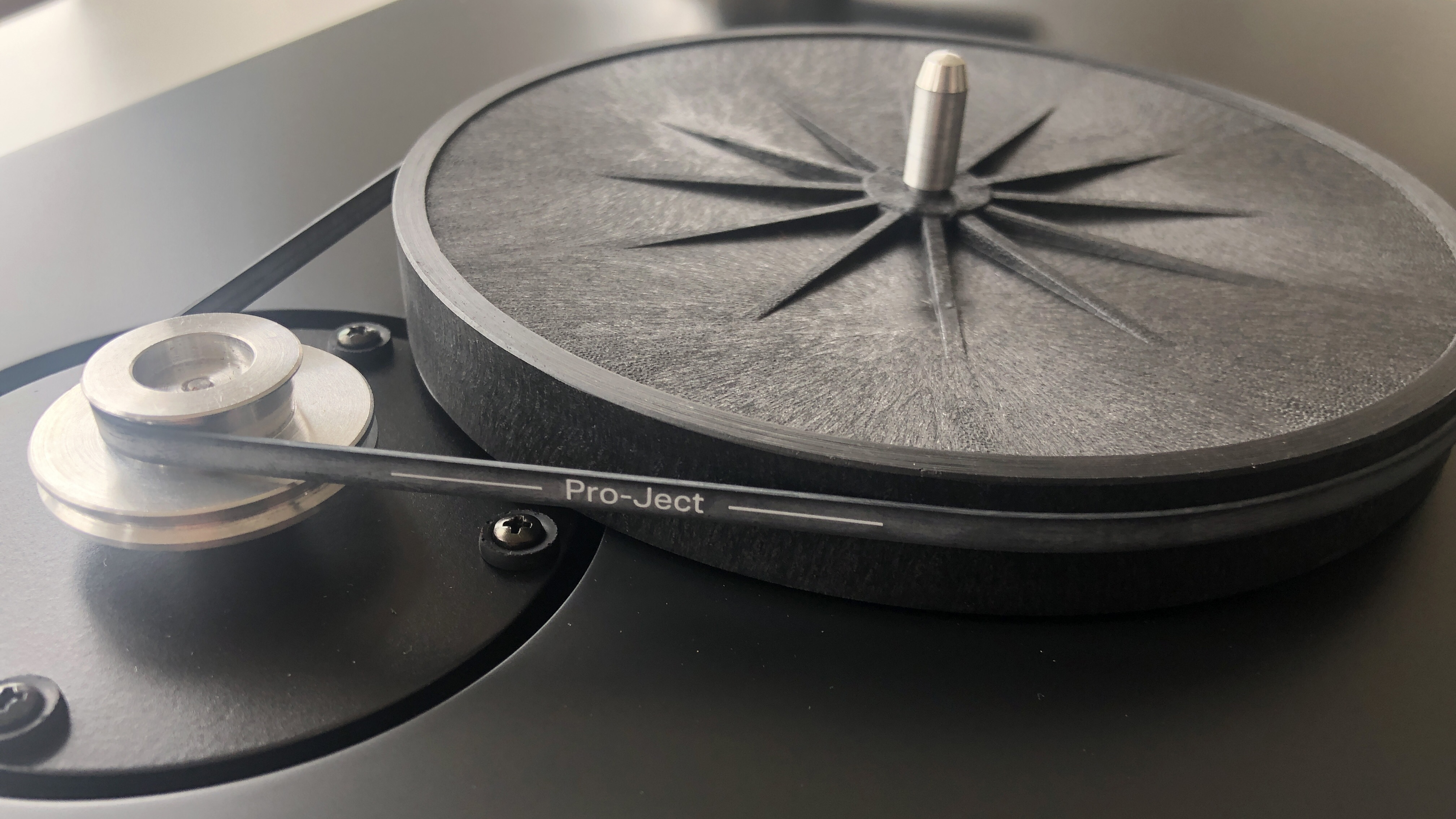
It’s usually only very expensive or very cheap record players that stray from the long-established design of these things - form follows function pretty closely where turntables are concerned, after all, and Pro-Ject isn’t in the habit of scaring consumers with radical design departures.
The hand-painted MDF plinth sits on three chunky aluminium feet - these provide a little damping and a lot of adjustability when it comes to making sure your plinth is level. The Debut Pro is a belt-driven design, with an electronically regulated synchronous drive motor which, according to Pro-Ject, offers ‘accurate and stable speeds’.
There’s a little toggle-switch at the bottom of the left of the plinth - this is for power and speed-control. The Debut Pro can turn at 33.3, 45 or 78rpm - you can access the first two, far more common, speeds simply by using the switch. If you want to play some old 78s, though, you’ll need to take off the platter, replace the flat drive-belt with the round alternative that’s also supplied, and fit it over the larger portion of the drive pulley. Hands up those of us who regularly alternate between 78s and the more usual speeds…
So it’s basically turntable business as usual. There’s a Perspex dust-cover to be fitted, some analogue interconnects and mains power to be fitted into place at the back of the plinth, and that’s your lot. Rocket science it ain’t.
Pro-Ject Debut Pro review: Verdict
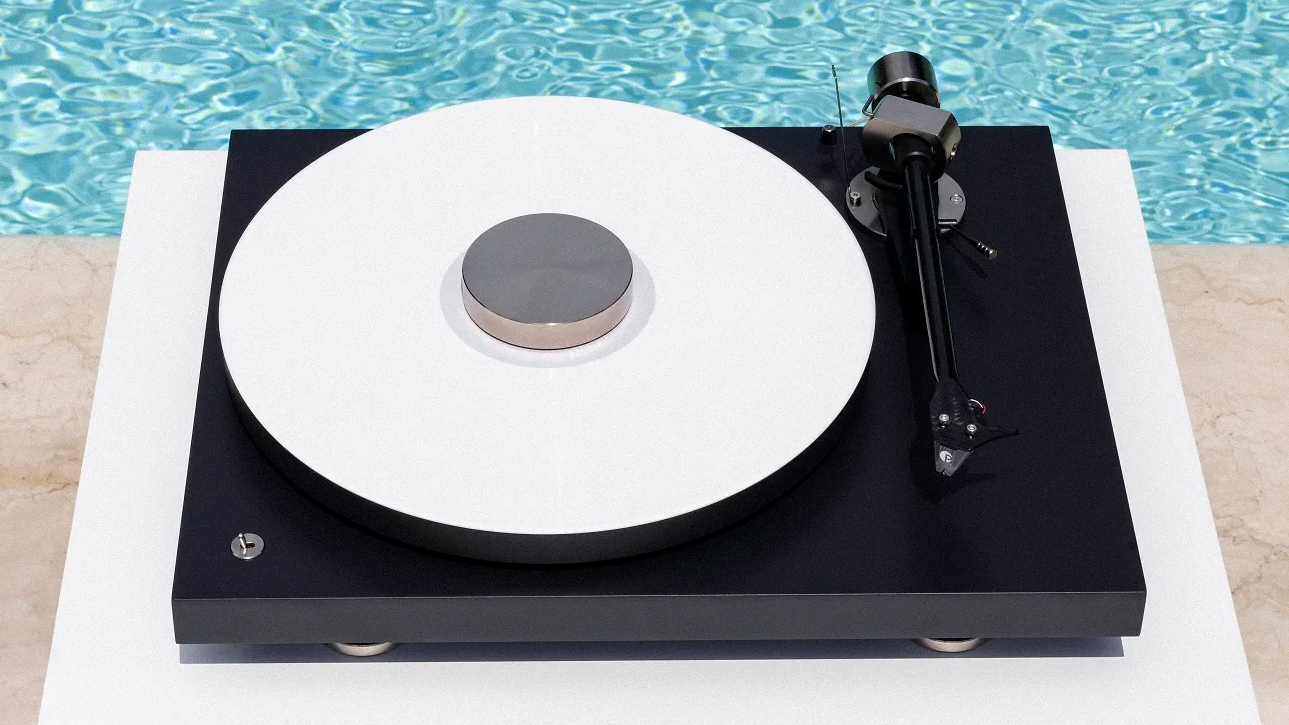
The Pro-Ject Debut has come quite a distance in its 20-odd years of existence, and the Debut Pro might well be the best version so far. The competition at this sort of price is strong, that’s for sure, but the Debut Pro demands serious consideration.
Also consider
The only reason not to mention Rega when discussing the best turntables around is negligence - the Essex-based manufacturer has been setting standards at all sorts of price-points for years now. For slightly more than Debut Pro money it will sell you its Planar 3/Elys 2 combination, which is one of the very best pound-for-pound record players around. Or if you like a chunkier aesthetic as well as a chunkier sound, spend a little more again and become the proud owner of the SL-1500C by Technics - one of the most iconic turntable brands around.
Simon Lucas is a freelance technology journalist and consultant, with particular emphasis on the audio/video aspects of home entertainment. Before embracing the carefree life of the freelancer, he was editor of What Hi-Fi? magazine and website – since then, he's written for titles such as Wired, Metro, the Guardian and Stuff, among many others. Should he find himself with a spare moment, Simon likes nothing more than publishing and then quickly deleting tweets about the state of the nation (in general), the state of Aston Villa (in particular) and the state of his partner's cat.
